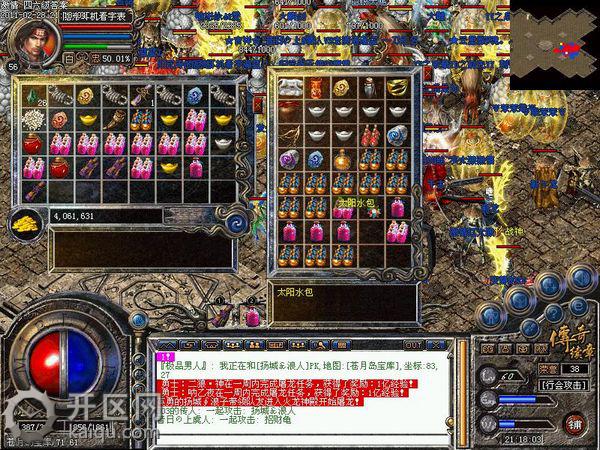每日最新网通新开1.76复古传奇私服发布网站
佩魅力开区网
- admin 2024年9月29日0
1.80版: Understanding Version Updates and Their Impact on Software Performance
What is Version 1.80 and Why is it Significant?
Version updates in software development serve a critical role in improving functionalities and addressing user concerns. Within the vast landscape of software, the release of 1.80 can be particularly significant for developers and users alike. This version represents a milestone where notable enhancements, bug fixes, and possibly new features tend to be bundled. Such updates aim to refine performance, strengthen security measures, and sometimes even revamp the entire interface. They allow developers to respond to feedback collected from users, which is instrumental in refining user experience and aligning the software capabilities with current technological needs.

Version 1.80 is often associated with the culmination of numerous iterations and user feedback accumulated during previous releases. When a new version emerges, it typically introduces optimizations that enhance the softwares efficiency. These improvements can range from speed enhancements to modifications that allow for better compatibility with other systems and software. Understanding the significance of minor and major version updates like 1.80 is essential for developers dedicated to maintaining their applications’ relevance and effectiveness in a fast-moving digital environment.

The Role of Version Control in Software Development
Version control is a fundamental practice in software development. It aids teams in tracking changes made to the code over time and helps manage the evolution of the software. With the advent of version 1.80, development teams often rely on version control systems (VCS) like Git to facilitate these changes while allowing for collaboration among various stakeholders. The process of version control provides a safety net that enables developers to experiment with features without the fear of permanently altering the codebase in a detrimental manner.
When discussing version 1.80, it’s crucial to consider how effectively version control can influence software stability and efficiency. A well-defined versioning strategy allows teams to handle updates and rollbacks seamlessly. Mistakes made in an earlier version can often be rectified in subsequent releases without inconveniencing users significantly. Additionally, progression to higher version numbers indicates a maturity level of the application and signifies ongoing commitment to improvement. By keeping meticulous records of changes and conveying these updates through effective versioning, users can better understand what to expect with each new release, thus enhancing overall user engagement and trust in the software product.
Q: What are the benefits of upgrading to version 1.80?
A: Upgrading to version 1.80 may offer improved performance, enhanced security features, and new functionalities that enhance the user experience, reflecting user feedback and developmental progress.Q: Why is version control crucial in software updates?
A: Version control is vital because it enables developers to track changes, collaborate effectively, and maintain software stability, allowing for easier rollbacks and management of updates.
文章内容页下在线分享
1.80版: Understanding Version Updates and Their Impact on Software Performance
Powered By 2020-2025 Theme By 网站地图
评论列表: